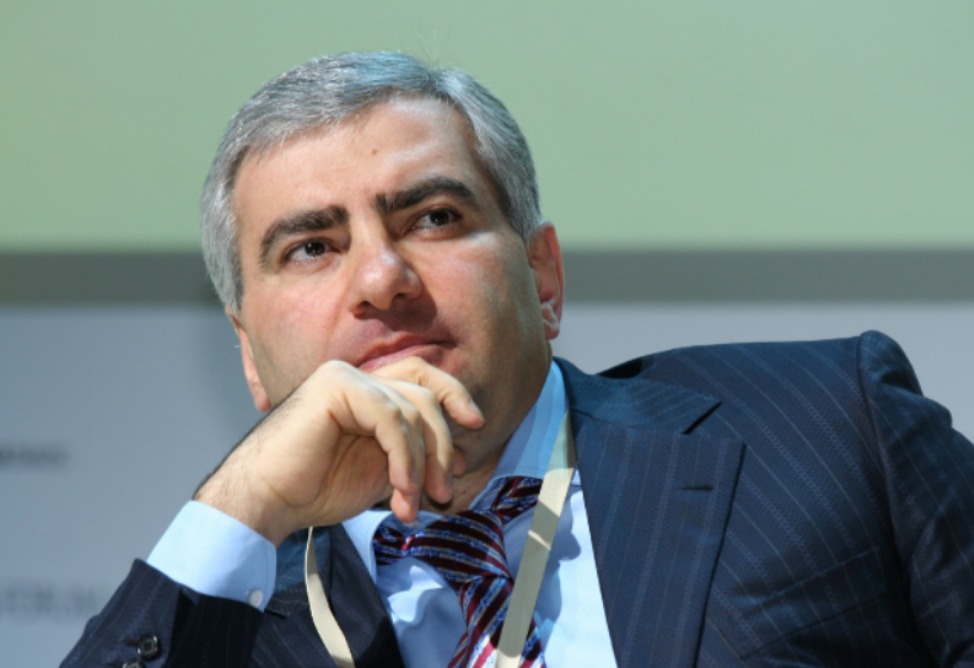OSCE Minsk Group urges for decisive steps to peaceful settlement
07.12.2012,
11:45
Foreign Minister of the Russian Federation Sergey Lavrov, Secretary of State of the United States Hillary Rodham Clinton, and Minister Delegate for European Affairs of France Bernard Cazeneuve made a joint statement in Dublin Thrusday.

YEREVAN, December 7. /ARKA/. Foreign Minister of the Russian Federation Sergey Lavrov, Secretary of State of the United States Hillary Rodham Clinton, and Minister Delegate for European Affairs of France Bernard Cazeneuve made a joint statement in Dublin Thrusday.
"We, the Heads of Delegation of the OSCE Minsk Group Co-Chair countries, call upon the parties to the Nagorno-Karabakh conflict to demonstrate the political will needed to reach a peaceful settlement,” reads the statement put on the OSCE official website.
The statement also says that the parties should be guided by the Helsinki principles, particularly those relating to the non-use of force or the threat of force, territorial integrity, and equal rights and self-determination of peoples, and the elements outlined in the statements at L’Aquila in 2009 and Muskoka in 2010.
“Recalling the statement of our Presidents at Deauville in 2011, we again urge the parties to take decisive steps to reach a peaceful settlement,” reads the statement.
The document expressed a regret that the expectations of more rapid progress in the peace process, based pn the joint statement of the Presidents of Armenia, Azerbaijan and Russia at Sochi on January 23, 2012, were not met.
“The parties have too often sought one-sided advantage in the negotiation process, rather than seeking to find agreement, based upon mutual understanding,” the document says.
The co-chairs recognized the decrease in serious incidents along the line of contact and the border in recent months. Yet, they reminded the parties of the need to continue to respect the ceasefire of 1994.
“The use of military force will not resolve the conflict. We urge the parties to refrain from actions and statements that foster feelings of enmity among their populations and have raised tensions in recent months,” the document says.
It is stressed in the document that the leaders of the sides must prepare their populations for the day when they will live again as neighbours, not enemies, with full respect for each other's culture, history, and traditions.
"We call upon the parties to demonstrate a greater sense of urgency in the peace process and to work with the Co-Chairs to give full and careful consideration to ideas presented by the Co-Chairs during their trip to the region in November. We welcome the readiness of the Foreign Ministers of Azerbaijan and Armenia to meet jointly with the Co-Chairs early in 2013 to continue these discussions. Our countries continue to stand ready to do whatever we can to assist the parties, but the responsibility for putting an end to the Nagorno-Karabakh conflict remains with them."
The Karabakh conflict started in 1988 when prevailingly Armenian population of Nagorno-Karabakh declared withdrawal from Azerbaijan. On December 10, 1991, a referendum was held in Nagorno-Karabakh where 99.89% voted for independence from Azerbaijan.
Azerbaijan responded by large-scale military operations that led to loss of control not only over Nagorno-Karabakh itself, but also over seven adjoining areas. About 25-30 thousands people were killed and about a million had to leave their homes during the military operations.
A trilateral cease-fire agreement was signed on May 12, 2004, and has been followed since then.
The ongoing Karabakh peace process started in 1992 under auspices of OSCE Minsk Group. -0-



